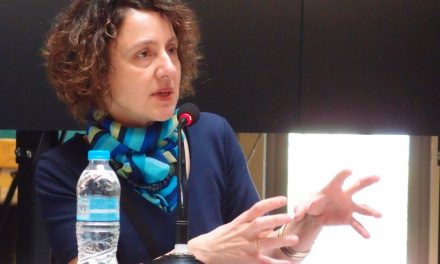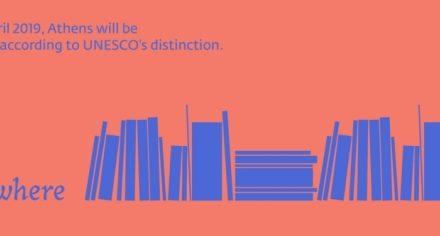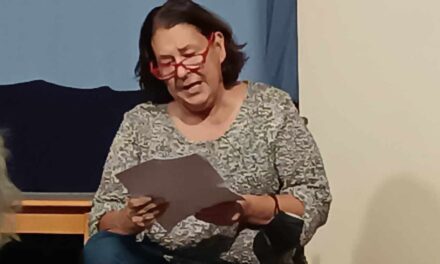Vana Manasiadis was born in Wellington, New Zealand, and she divides her time between Greece and New Zealand. As co-editor of the Seraph Press ‘Poetry in Translation Series’, she edited and translated from the Greek the first bilingual volume Ναυάγια/Καταφύγια: Shipwrecks/Shelters (Seraph Press, 2016). Her poetry has been widely published including in Jacket2 (University of Pennsylvania, Philadelphia, 2017), and Essential New Zealand Poems (Penguin Random House NZ, 2014), and she is the author of acclaimed verse biography/poetry collection Ithaca Island Bay Leaves: A mythistorima (Seraph Press, 2009). She regularly performs her work, and teaches Academic Literacy and Creative Writing at the Centre for Creative Writing at the Auckland University of Technology.
Vana Manasiadis spoke to Reading Greece* about Shipwrecks/Shelters: Six Contemporary Greek Poets, which introduces Greek poetry in New Zealand, commenting on how “so much current artistic practice in Greece epitomises this backwards and forwards movement between light and dark” and how the poems she chose speak to “this trajectory from struggle and mourning towards transference, collectivism, and emergence”. She notes that in times of crisis, “art should bear witness and not go quietly into the night”, adding that there is more to crisis than top level meetings and protests, “there’s craft, creativity, conversation, and composition”.
She explains that “there are in fact a few New Zealand writers with connections to Greece” and that in her case, “the idea of ‘being here and there’ is the most appropriate ongoing frame of reference”. She concludes that “the immigrant experience is often bookended by disruption and fragmentation”, explaining that this is the reason she returns to the notions of movement and reinvention in her writing, “trying to glue the fragments by writing in fragments”.
You edited and translated Shipwrecks/Shelters: Six Contemporary Greek Poets recently published by Seraph Press. How did you decide to embark on such a venture? What about the title Shipwrecks/Shelters?
The first motivation came after I returned to Aotearoa/New Zealand and didn’t see much locally published poetry in translation. After being in Greece, and Europe generally, the largely anglophone – albeit very vibrant – literary community made me feel the country’s distance from the rest of the world quite acutely. Were there many translations of non-English poetry being undertaken by local poets? I was keen on finding the antidote to the dislocation I was feeling, (a first experience of ‘shipwreck’), and simultaneously keen on introducing a little Greek poetry in English because I’d often been disappointed with the English translations I’d come across. Together with the translator and lecturer Marco Sonzogni, and Helen Rickerby, of Seraph Press, we committed to beginning the press’s Translation Series conceived as a series of marriages between New Zealand poets and languages other than English.
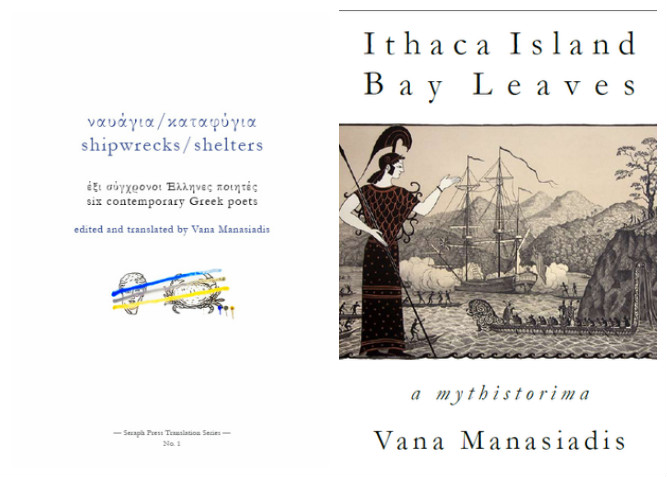
Then, during a day on a beach called Huia, we came across the display of the mast from the 1863 Orpheus which lost 189 of its crew when it sank. And I started to think of the relationship of shipwreck to shelter and the idea that shipwrecks do eventually house marine life, and can – like the many ancient shipwrecks in the Aegean – safeguard treasures. In my own life, if I was experiencing something like shipwreck then I was also experiencing sanctuary after a very difficult period: I’d lost my mother to cancer, experienced a breaking Greek health system, grief, financial plummet, ill health and depression. (On the other side:my neighbours in Athens, the urban landscape and its ability to rejuvenate and reinvent itself, our refuge in Heraklion and the sea five minutes from the house).
I was also thinking about how so much current artistic practice in Greece epitomises this backwards and forwards movement between light and dark. So I decided I particularly wanted to translate poems that spoke to this trajectory from struggle and mourning towards transference, collectivism, and emergence. I wanted to introduce this zeitgeist in Greek poetry to a new and receptive audience.
You have stated that in editing and translating the poems in Shipwrecks/Shelters, you considered, among other things, Maurice Scève’s idea that ‘translation, like love or music, involves being apart together’. Could you elaborate on that?
I was inspired by the essay ‘Ensemble Discord’ by translator Richard Sieburth. The quote in its entirety is, ‘translation like love or music involves being apart together, mutually ingathered by an interval or caesura that…renders us ensembles discords’. Doesn’t love work better if two individuals exist in a mutualistic push and pull as separate agents, connected but uncompetitive? Isn’t music often made with many instruments forming a body, or made by only one body – the musician’s breath, or touch – combined with air, gravitational pull, perhaps friction? Translation itself also embodies this motion from separateness to unity and inhabits the caesura between two independent spaces.

In the meantime, the very act of translating is analogous to eros and desire. The translator tries to get under the skin of the object, translate the poem/poet into something recognizable, reflect, surrender. As essayist Eliot Weinberger argues, translation is an act of self-abnegation, subordination; of the putting aside of ego. And longing was ever-present while I was working on the translations, longing for Greece and for the Greek language. (But I had to find my own caesura or ‘place to stand’ – ‘turangawaewae’ in Māori – before I could make contact, and luckily wind and water don’t trade in borders.) Essentially, the project was very personal and entwined with my own moving between worlds, spaces, identities.
What is the role poetry is called to play for a country in crisis? In this respect, how important is to get this poetry into the world?
Poetry is everything, or was so for thousands of years, as information, record, witness, bridge. And epic poetry was of course passed down orally from parent to child, communities connecting over music and rhythm of sound and sense. This oral aspect of poetry, its percussion and cry, is vitally important to me. But poetry is more than the news. It is deeply connected to our humanity, creativity, generation. It is graffiti, the I am here, we are here, this is what we feel, how we survive. Art should bear witness and not go quietly into the night. During the Documenta 14 hosted public talk ‘Athens Social Economies: Deinstitutionalizing Alternatives, Global Capitalism, and Local Knowledge’, philosopher and writer Max Jorge Hinderer Cruz posed questions such as: How does an individual or a community counter the removal of rights and securities by a dominant power matrix? What is the response when the status of a political or native entity changes from legitimate to other, from included to excluded?
Shelters/Shipwrecks is a small-in-size collection, but the poems are all calls, unapologetic and determined. ‘Muscle’, ‘borders’, ‘bodies’, ‘gaze’, ‘armour’, ‘multiplicity’: one word can call to attention, to action. There’s more to crisis than top level meetings and protests, there’s craft, creativity, conversation, and composition. In other words: imagination and breath. For all these reasons it was also very important to have contemporary Greek urban art on the cover, and Cacao Rocks the prolific Athenian street artist, who exhibits and participates in festivals all over the world, gave us the gift of his beautiful, iconoclastic ‘Dominique, 2016’.
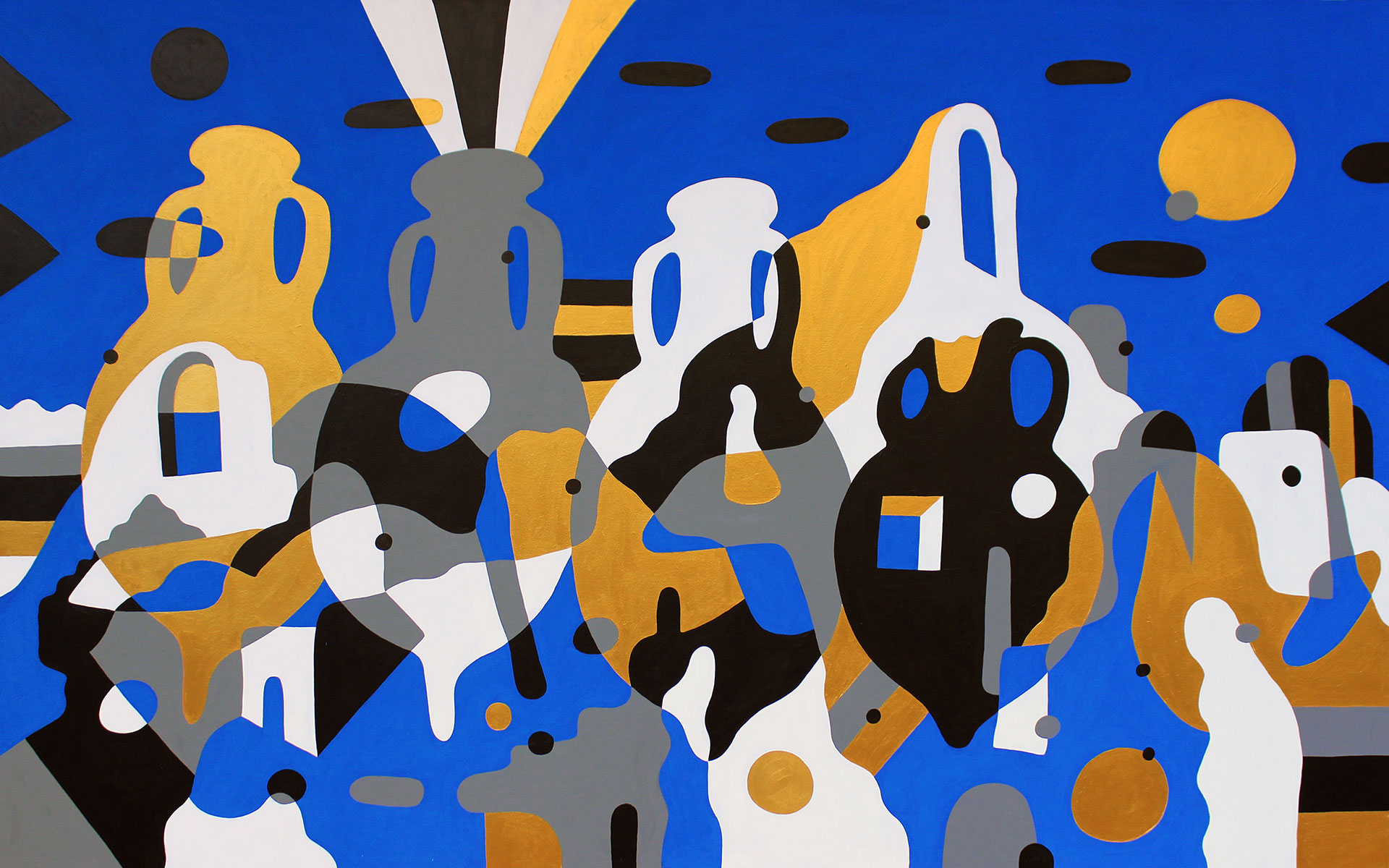
What about your first poetry collection Ithaca Island Bay Leaves: A mythistorima? Why did you choose to use the word “mythistorima” to describe a poetry collection?
I’d read Anne Carson’s Autobiography of Red: A novel in verse while working on the first draft, and her title was an early inspiration. Like Carson’s work, Ithaca Island Bay Leaves tells a story, and is essentially a single narrative poem. I decided to adopt ‘mythistorima’, the Greek word for ‘novel’, because of the semantic combination of ‘myth’ and ‘history’. Seferis, the Greek modernist poet, stated a similar motivation behind his use of the word in his author’s notes, (although I hadn’t come across those at the time of writing the book), but I had especially wanted the combination to allude to the time when people communicated myths and histories by mouth. As I said at the time of publication, in an interview with writer and editor Tim Jones, ‘I wanted to assume oral language, with its tangents, fillers and pauses, as the governing concept’. Speech, performance and exchange have long embodied the freedoms of expression and movement. I like very much that Adamantios Korais, eighteenth century liberal scholar who believed in liberty and equality, coined the term ‘mythistorima’ during the Greek Enlightenment.
“Exploring the ex patria feeling of ‘being here and being there,’Vana Manasiadis sews together Greece and New Zealand to create a playful and deeply moving journey“. Is there an identifiable tradition of Greek-New Zealand writing, or New Zealand writing about Greece, and if so, do you see Ithaca Island Bay Leaves as part of this tradition?
Michael Harlow is one of New Zealand’s most respected veteran poets, and of Greek-Ukrainian descent. Mary McCullum, writer and independent publisher who descends from Rethymno, has published two novels with Greek connections, and I was one of the first novel’s early readers, (Maggie Rainey-Smiths novel Daughters of Messene, about a Greek family from Peloponnesus, soon to be translated and published also in Greece). There are in fact a few New Zealand writers with connections to Greece, and Mary and I have even discussed collecting some of this work into an anthology, which I would love to do.
In terms of my own contribution, I can say that I’m one of those writers who writes what they know, and splitting time between Greece and New Zealand, does define me in many ways. But perhaps the idea of ‘being here and there’ is the most appropriate ongoing frame of reference for me. Lynley Edmeades writing for Jacket2 offers this opinion: ‘Manasiadis’ reference to Greek and classical traditions, and her borrowing of forms from her poetic forebears, lets her cultivate a poetic voice relatively peculiar to these shores…her work acts as a conduit between her ancestors and this New World, between classical and colloquial Greek and her New Zealand English, between mythology and reality, between the past and the present, between her last poem and her next.’
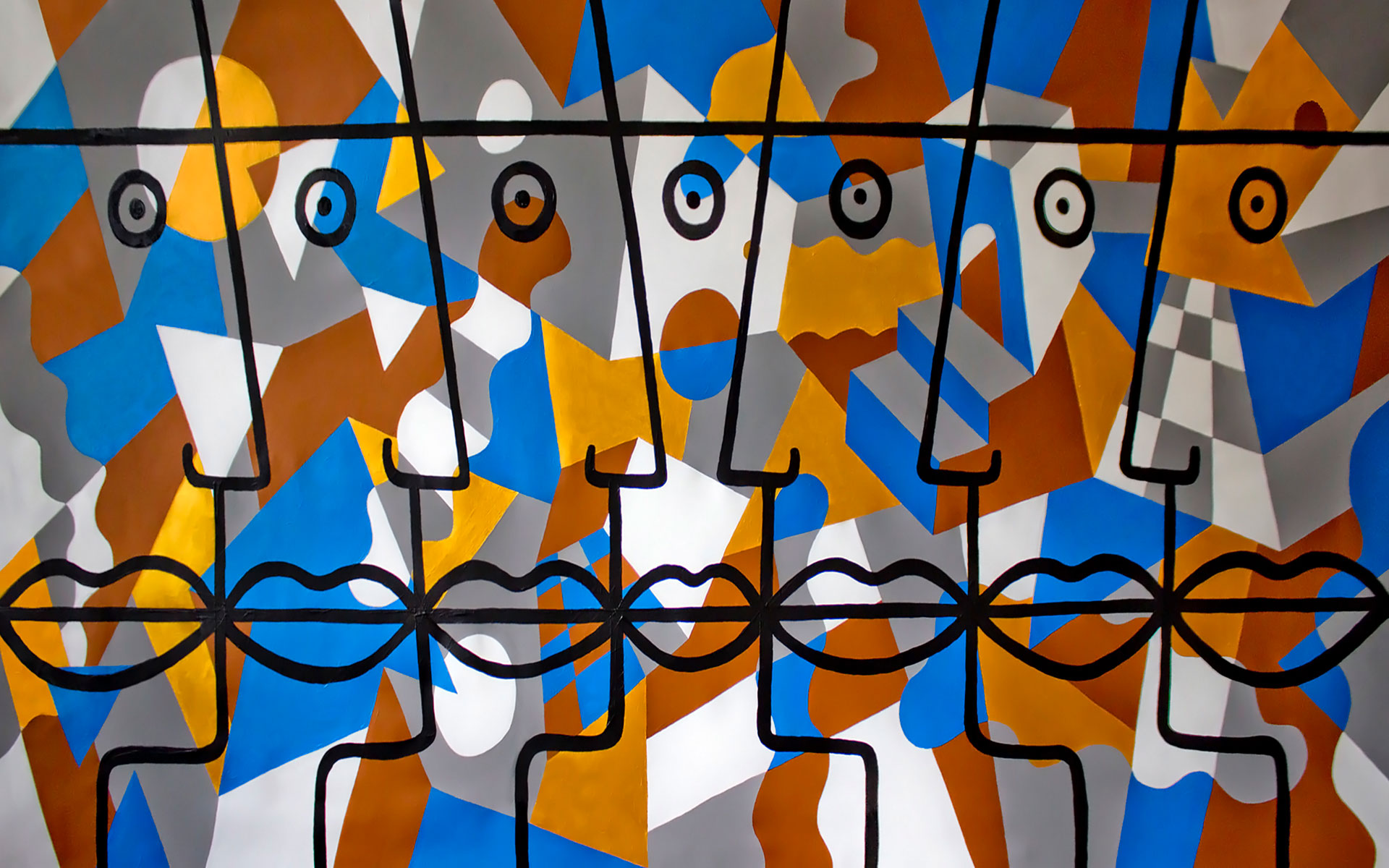
You have stated that as “an immigrant’s daughter for whom multiculturalism is crucial, you can’t help but recoil at the idea of borders, restriction of the freedom of movement, refugees floating in water or limbo, or purgatory or hell”. How are the notions of disruption, fragmentation, mobility, departure and home imprinted on your job?
The immigrant experience is often bookended by disruption and fragmentation. As an immigrant and single parent, my mother was stuck financially, spiritually and geographically, and experienced otherness every single day. She was intensely literary, a writer herself, but pre-internet had no access to Greek language texts in New Zealand. She was essentially cut off from herself; lost her selfness. And, having married a New Zealander, she didn’t get what she needed from the Greek community in Wellington – her peers were almost all in monocultural marriages, married to other Greeks and wary of the New Zealand culture outside their gates.
Suspicion of otherness is dangerous, and as such, the origins of racism can be surprising. As children, my pale and red-haired sister and I experienced the most prejudice from members of the Wellington Greek community despite our identification, fluency, Greek family-history-home. The criteria of inclusion were missing: we didn’t look stereotypically Greek. Even in adulthood, the only experience I have had of this kind is from another New Zealand Greek woman who has said I’m not really Greek; and ironically, she is an anti-racism advocate. I find this curious. But it also speaks to deep wounds and the desire for home and identity that so embodies the immigrant experience, even generations after migration. There is trauma, and it finds ways to express itself. The play between inclusion and exclusion is complicated and ongoing. Perhaps this is why I return to the notions of movement and reinvention in my writing. I’m trying to glue the fragments by writing in fragments, employing parentheses, conflating chronologies and suggesting gaps. I am always interested in the porousness, and in the uncertain space.
I also recoil a little at the idea of categories in writing (and like very much that writing from my earlier collection has been catalogued variously as short fiction or poetry in library catalogues). And I’ve been describing the collection I’m hoping to finish soon – with its references to earlier work, its connections, and combinations of forms – ‘a sequel’. However definition is not always helpful. We have only been stationary a short time in the 200,000 years on this planet, and have experienced shifting selfhoods for millenia. My grandfather arrived in Athens a refugee in 1922, today’s refugees find themselves in similarly terrifying and unfamiliar territory. There is a continuum and we are all along it somewhere. Perhaps departure and home are points on a circle rather than on a straight line. And the circle is shot full of holes.
*Interview by Athina Rossoglou
TAGS: LITERATURE & BOOKS | READING GREECE

